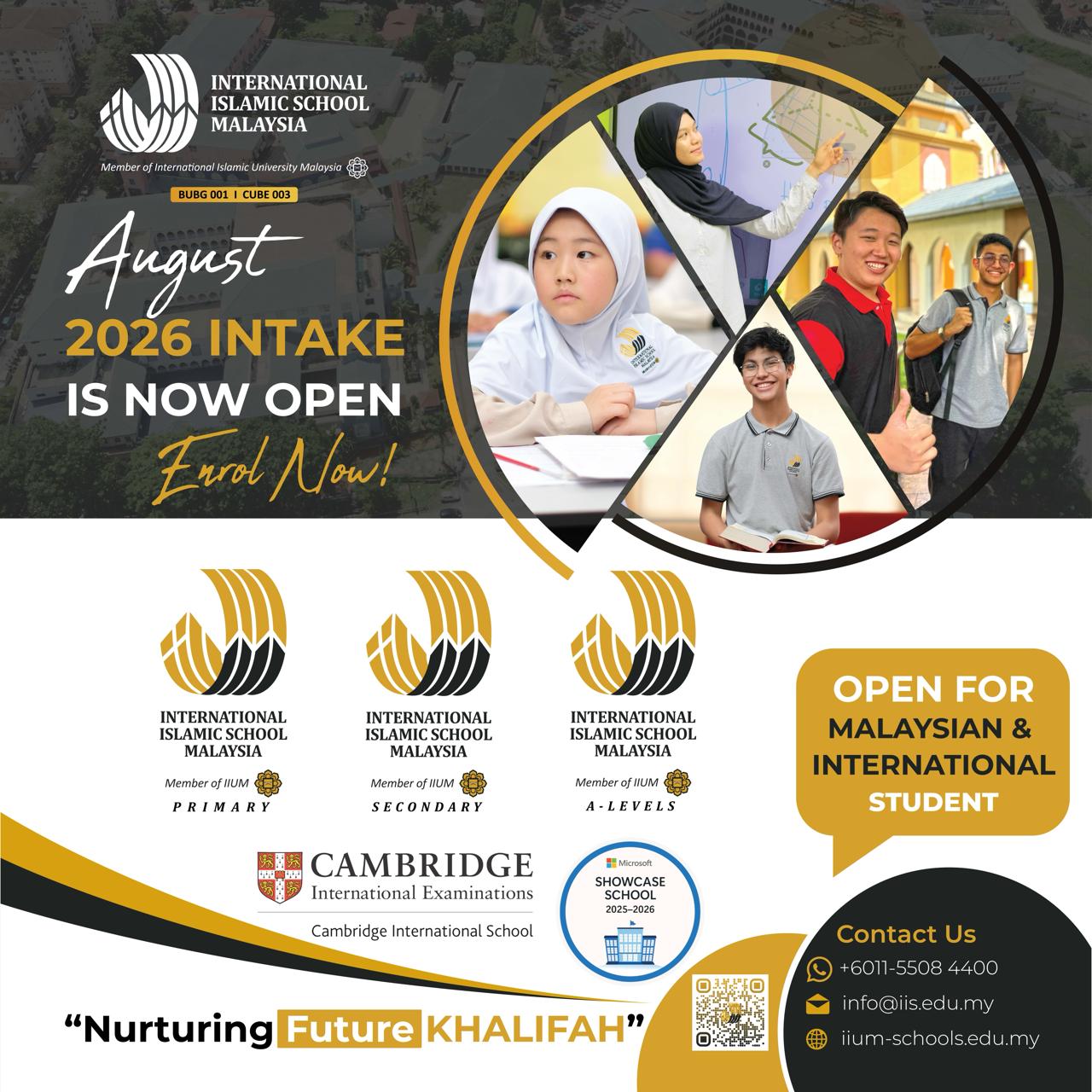Author: Ben Schmidt, the Regional Director Southeast Asia & Pacific, Cambridge International
Our appetite for innovation has grown substantially over the past few years. With digitalisation being the key to this growth, we have seen the rising adoption of new technologies in our daily lives, especially as the world embraces the Fourth Industrial Revolution (Industry 4.0). This Revolution is ultimately changing the way we connect, live, work, and educate our children.
While this innovation represents progress, it may impact the current workforce, especially in how people interact with technology to perform their daily activities. With the growing sophistication of artificial intelligence and automation technology, McKinsey and Company estimates that 4.5 million jobs could be displaced in Malaysia by 20301, and globally, this figure may rise up to 800 million2. But McKinsey also predicts that about 6 million new jobs will be created in Malaysia during the same period, and this calls for the workforce to be equipped with digital knowledge and related skills in order to adapt to the rapid changes in the technology landscape.

Overview of Industry 4.0 in Malaysia
To prepare the local workforce, the Malaysian government introduced the National Fourth Industrial Revolution policy in June 20213. It was developed as a guiding principle to help the nation to increase workforce productivity by 30% across all sectors by 2030 – especially in the agriculture, manufacturing and services sectors.
The policy has 16 strategies – six are targeted at equipping society with the necessary skills to adopt Industry 4.0. The strategies include plans to upskill 20% of the current semi- and low-skilled workers, and there is the expectation to adequately train teachers to use Industry 4.0 technologies in their lessons by 2030. To realise this goal, the Malaysian workforce is being offered the opportunity to upskill through government-run sectoral-based development centres and incentive programmes.

Industry 4.0 on the Malaysian Education Landscape
As the Malaysian government develops frameworks to support the local workforce in adopting Industry 4.0 technologies, it is also equally important for the education sector to update their existing teaching and learning curriculums to help the younger generation to prepare for an increasingly digital future. Under the guiding principles of the National Fourth Industrial Revolution policy, the government outlines the plans to scale up students’ exposure to technologies, encourage innovation, and implement 21st Century Learning (“PAK-21”) programmes. Industry 4.0 therefore presents an opportune time for the education sector to embrace changes and to build a strong curriculum foundation which increases our children’s capacity to deal with the increasingly digitalised world.
According to Melinda Lim, Principal of MITstem International School, a Cambridge International school in Selangor: “Skills such as programming, robotics and application development are important for students to build the foundation they need for the future. At MITstem International Schools, these skills are currently imbedded into students’ coursework, be it Physics, Chemistry, Mathematics or ICT, for them to explore and be creative with the subjects, and to grasp a better understanding.”
Such sentiment is echoed in another Cambridge International school in Kuala Lumpur.
"With the accessibility and availability of most up-to-date technology and learning resources that support the curriculum, I expect that this will have a positive impact on students’ learning and development, especially in their creativity and understanding of how computers are increasingly able to facilitate communication,” added Andrew Dalton, Director of Education at The International School @ ParkCity in Desa ParkCity.

The Cambridge International Curriculums for Industry 4.0
Cambridge International’s Primary and Lower Secondary curriculum now includes Computing, which emphasises analytical and critical thinking skills related to digital concepts. Designed with Industry 4.0 in mind, the new Computing curriculum specifically focuses on helping young people to develop skills such as programming (coding), computational thinking, and data analysis, and an understanding of connectivity and automation. While not every child may want to become a computer scientist in the future, having a grasp of how computers work will benefit them as they progress into adult lives that revolve on Industry 4.0.
As digitalisation is accelerated by the global COVID-19 pandemic, Industry 4.0 technologies are fast becoming prevalent in our children’s everyday lives. The Cambridge Primary and Lower Secondary Computing curriculum aims to help them to make sense of the increasingly connected world. Through this, we hope to cultivate an informed curiosity and a lasting passion for learning that will prepare our children for the future workforce.
1Automation and adaptability: How Malaysia can navigate the future of work
2AI, automation, and the future of work: Ten things to solve for
3National Fourth Industrial Revolution (4IR) Policy















![[Maahad Tahfiz Negeri Pahang] Asia Youth International Model United Nations](https://mint-edm.sgp1.digitaloceanspaces.com/production/qKffTsfZisDxO4b6kcejusAA7mWWgL.jpg)





















